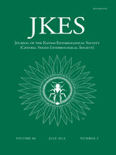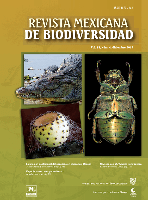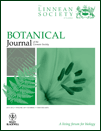
APIDOLOGIE
Scope & Guideline
Innovating Research in Apidology and Beyond
Introduction
Aims and Scopes
- Bee Ecology and Behavior:
Research on the ecological roles and behavioral patterns of bees, including foraging behavior, nesting biology, and interactions with plant species. - Pollination Biology:
Studies focusing on the mechanisms and efficiency of pollination by various bee species, including their contributions to agriculture and ecosystem stability. - Bee Health and Disease Management:
Investigations into diseases affecting bee populations, including the impacts of pests like Varroa destructor, and the effects of pesticides and environmental stressors. - Genetic Diversity and Conservation:
Research on the genetic variation within and between bee populations, emphasizing conservation strategies for endangered species and the implications of hybridization. - Bee Products and Their Applications:
Exploration of the various products derived from bees, such as honey and propolis, and their potential uses in health, nutrition, and industry. - Climate Change and Environmental Impact:
Studies assessing the effects of climate change and habitat alteration on bee populations, their distributions, and their ecological roles.
Trending and Emerging
- Impact of Pesticides on Bee Health:
There is a growing body of research investigating the sublethal and chronic effects of various pesticides on bee health, behavior, and colony dynamics, reflecting increasing concerns about environmental toxins. - Climate Change Adaptation Strategies:
Emerging studies focus on how bee populations adapt to climate change, including physiological responses to heat stress and habitat shifts, highlighting the resilience and vulnerability of different species. - Bee Conservation and Biodiversity:
Research on conservation strategies, including habitat restoration and the importance of genetic diversity in bee populations, is gaining importance as threats to bee species escalate. - Microbial Interactions and Bee Health:
An increasing interest in the role of gut microbiota and microbial pathogens in bee health is evident, with studies exploring how these interactions affect bee immunity and disease resistance. - Nutritional Ecology of Bees:
Emerging themes focus on the nutritional requirements of bees, including the impact of diet quality on health, reproduction, and foraging behavior, reflecting a holistic approach to understanding bee biology.
Declining or Waning
- Traditional Beekeeping Practices:
There has been a noticeable decrease in studies focusing on traditional beekeeping methods, possibly due to the increasing interest in modern, sustainable practices and the challenges posed by environmental changes. - Invasive Species Impact Studies:
While the impact of invasive species on native bee populations was once a significant focus, recent publications suggest a waning interest, possibly overshadowed by more pressing concerns regarding habitat loss and climate change. - Morphological Studies of Bee Species:
Research primarily centered on the morphological characteristics of bees is declining, as there is a shift towards genetic and molecular analyses that provide deeper insights into bee biology. - Local vs. Global Pollinator Dynamics:
Studies comparing local pollinator populations to global trends are becoming less frequent, with a greater emphasis now placed on localized ecological interactions and conservation efforts.
Similar Journals

TROPICAL ECOLOGY
Advancing Knowledge in Tropical EcologyTropical Ecology is a distinguished journal published by SpringerNature that has been at the forefront of advancing the field of ecology since its inception. With a focus on tropical ecosystems, it addresses critical areas such as conservation biology, systematics, and environmental science. The journal is indexed within leading databases and enjoys a respectable impact factor, ranking in the second quartile (Q2) in Ecology as well as in Plant Science, and third quartile (Q3) in Ecology, Evolution, Behavior and Systematics for 2023. Its insightful research contributions place it among the top-tier publications in Agricultural and Biological Sciences, specifically in rankings such as #185 in Plant Science and #178 in Ecology. While it currently operates under subscription access, it remains an essential resource for researchers, professionals, and students interested in the dynamics of tropical environments, fostering a greater understanding of ecological principles and practices that are pivotal for sustainable development. The journal operates with continuous publication from 1976 to 2024, ensuring timely dissemination of impactful research findings that contribute to the global body of knowledge.

Austral Entomology
Fostering Collaboration in Insect ResearchAustral Entomology, published by Wiley, is a leading journal in the field of entomology, specializing in the study of insects within the wider context of agronomy, ecology, and evolutionary biology. With an impact factor that reflects its growing influence and a commendable H-Index, this journal serves a vital role in disseminating cutting-edge research that bridges the gap between basic entomological studies and applied agricultural practices. Since its inception in 2014, Austral Entomology has maintained a strong commitment to open access, fostering a collaborative environment for researchers and practitioners. Recognized within category quartiles Q2 across multiple fields such as Agronomy and Crop Science and Ecology, it ranks impressively among journals in Insect Science, showcasing the significance of its contributions to understanding insect behavior, ecology, and systematics. Given its robust accessibility options, the journal not only enhances the visibility of entomological research but also empowers professionals and students alike to engage with and apply findings in real-world contexts.

JOURNAL OF THE KANSAS ENTOMOLOGICAL SOCIETY
Connecting Research and Regional Entomological InsightsJOURNAL OF THE KANSAS ENTOMOLOGICAL SOCIETY, published by the Kansas Entomological Society, serves as a vital platform dedicated to the field of entomology and insect science. With an ISSN of 0022-8567 and an E-ISSN of 1937-2353, this journal has established itself since its inception in 1994, continuing to contribute valuable research up to 2024. Despite its current Q4 categorization in the 2023 Insect Science rankings, it ranks 106 out of 181 in Scopus, representing a significant opportunity for researchers to disseminate their findings in a supportive and engaged community. Although it is not an open-access journal, its commitment to rigorous peer review and relevance in agricultural and biological sciences makes it an essential resource for professionals, scholars, and students alike. The journal's focus on local and regional entomological issues often addresses broader ecological impacts, showcasing the importance of insects in environmental health and agriculture. We invite you to explore the rich tapestry of findings and discussions within this esteemed publication.

Revista Mexicana de Biodiversidad
Fostering Global Dialogue on Biodiversity and ConservationRevista Mexicana de Biodiversidad is a prominent academic journal dedicated to the field of biodiversity and conservation, published by the prestigious Instituto de Biología, Universidad Nacional Autónoma de México. Since its inception as an Open Access publication in 2005, it has aimed to disseminate high-quality research that advances the understanding of biological diversity in Mexico and beyond. With an ISSN of 1870-3453 and an E-ISSN of 2007-8706, the journal caters to a diverse audience, including researchers, professionals, and students, by providing vital insights into ecological studies, conservation strategies, and the sustainable management of natural resources. The journal is committed to fostering scientific collaboration and promoting the significance of biodiversity in addressing contemporary environmental challenges. By publishing innovative and impactful research, the Revista Mexicana de Biodiversidad plays an essential role in the global discourse on biodiversity conservation.

CONSERVATION GENETICS
Fostering Collaboration in Conservation Genetics ResearchCONSERVATION GENETICS is a leading journal dedicated to the study of genetic diversity and its implications for conservation biology. Published by SPRINGER in the Netherlands, it serves as a vital resource for researchers, professionals, and students interested in the intersection of genetics and environmental stewardship. With an ISSN of 1566-0621 and a focus on articles published since 1994, this journal currently holds impressive rankings, including Q2 in Ecology, Evolution, Behavior, and Systematics and Q3 in Genetics as of 2023, making it a pivotal platform in these fields. Although not an Open Access journal, it provides substantial insights into conservation strategies and genetic research, facilitating the understanding of species preservation and biodiversity. By contributing to the discourse surrounding genetic factors in conservation, CONSERVATION GENETICS underscores the importance of integrating genetic knowledge for effective management of natural resources and ecosystem sustainability. Join a community of scholars committed to advancing the science of conservation genetics through innovative research and collaborative inquiry.

ANIMAL BIOLOGY
Fostering Understanding of Life Sciences through Open AccessANIMAL BIOLOGY is a distinguished journal published by BRILL, focusing on the dynamic fields of Animal Science and Zoology, as well as Ecology, Evolution, Behavior, and Systematics. With an ISSN of 1570-7555 and an E-ISSN of 1570-7563, this quarterly journal serves as a pivotal platform for researchers and professionals seeking to contribute to the understanding of animal biology across diverse ecological contexts. The journal is recognized with a 2023 Scopus ranking of #234 out of 490 in the Animal Science and Zoology category, placing it within the 52nd percentile, alongside a rank of #409 out of 721 in Ecology, marking a solid contribution to the field. Although it currently holds a Q3 quartile in both categories, its commitment to quality research and novel insights continues to bolster its significance within the academic community. The open access option coupled with its publication history from 2003 to 2024 ensures a wide dissemination of knowledge, drawing in a global audience of researchers, professionals, and students eager to explore the intricacies of animal biology. By promoting high-quality discussions and innovative studies, ANIMAL BIOLOGY plays an essential role in advancing the understanding of life sciences and the evolution of biodiversity.

Journal of Vertebrate Biology
Exploring the depths of biodiversity and conservation.Journal of Vertebrate Biology, a reputable publication established by the Institute of Vertebrate Biology in the Czech Republic, serves as a vital platform for research across the fields of Animal Science and Zoology, Aquatic Science, and Ecology, Evolution, Behavior and Systematics. With its ISSN 2694-7684 and a commendable 2023 Q2 ranking in multiple categories, this open-access journal embraces innovative scientific inquiry and fosters academic discourse. The journal's commitment to disseminating high-quality research is reflected in its Scopus rankings, positioning it within the top quartile in several impactful areas. As it continues to converge its focus until 2024, researchers, professionals, and students alike are encouraged to engage with cutting-edge studies that advance our understanding of vertebrate biology. This publication stands out not only in its scholarly contributions but also in enhancing global awareness of biodiversity and conservation issues.

Frontiers in Insect Science
Innovating Solutions for Biodiversity and AgricultureFrontiers in Insect Science is a pioneering open-access journal dedicated to the advancement of knowledge in the field of insect science. Published by FRONTIERS MEDIA SA in Switzerland, this journal serves as a vital platform for researchers, professionals, and students to disseminate high-quality, peer-reviewed research spanning diverse topics within insect biology, ecology, and pest management. Since its establishment in 2021, the journal has gained recognition, ranking in the Q2 category of Insect Science with a Scopus ranking of #92 out of 181 in the field. With a commitment to promoting open access and collaboration, Frontiers in Insect Science is instrumental in fostering innovative research and practical applications essential for combating biodiversity loss and enhancing agricultural sustainability. As a freely accessible resource, it invites contributions that impact both fundamental and applied insect research, connecting a global network of scholars eager to explore the fascinating world of insects.

BOTANICAL JOURNAL OF THE LINNEAN SOCIETY
Advancing Knowledge in Botany and Environmental StudiesThe Botanical Journal of the Linnean Society, published by Oxford University Press, stands as a premier platform for interdisciplinary research within the realms of Ecology, Evolution, Behavior, and Plant Science. With a notable impact factor reflective of its esteemed reputation, this journal is classified in the Q1 quartile for both Ecology and Plant Science, placing it among the most influential publications in these fields. Since its inception in 1969, and with an anticipated convergence of research extending to 2024, it has become essential for scholars and professionals seeking to engage with cutting-edge studies, theoretical frameworks, and practical applications that drive our understanding of plant biology and ecological systems. The journal’s commitment to excellence is underscored by its robust Scopus rankings—achieving an impressive 83rd percentile in Ecology and a 82nd percentile in Plant Science. This makes the Botanical Journal of the Linnean Society a crucial resource for researchers, educators, and students alike, eager to advance their knowledge and contribute to the evolving discourse in botany and environmental studies.

JOURNAL OF PEST SCIENCE
Advancing pest management through innovative research.JOURNAL OF PEST SCIENCE, published by SPRINGER HEIDELBERG, is a premier academic journal dedicated to the multidisciplinary study of pest management, contributing significantly to the fields of Agronomy, Ecology, and Insect Science. With a history that spans back to 1925, this journal has established itself as a critical platform for disseminating innovative research, evidenced by its impressive Q1 rankings in multiple categories, including Ecology and Plant Science, as of 2023. The journal particularly excels in its contribution to Agricultural and Biological Sciences, holding a remarkable 98th percentile rank in Insect Science. By fostering open access, the JOURNAL OF PEST SCIENCE ensures broader dissemination and engagement with scientific advancements pertinent to pest control and management practices. Its commitment to publishing high-quality, peer-reviewed articles makes it an essential resource for researchers, professionals, and students looking to stay at the forefront of pest science and its application to sustainable agriculture and ecology.